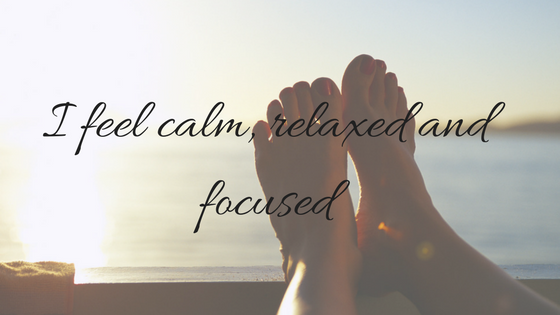An anxious person? It’s not always about you.
You are overreacting!
You are too sensitive!
Your personality!
Often our hormones and biochemical processes in the body dictate how we react to situations.
I often have clients say to me “It’s me I can’t change.”
“I get moody it’s my personality.”
“I’m an anxious person.”
We are all different and have different personalities by nature. But know that by balancing out your hormones you can change some of your innate behaviours. You can rid yourself of emotional shackles. Don’t for one minute think that this is you cannot do anything about it.
Two things are very very clear to me. Two things for which I’m an avid advocate.
One is – the older you get doesn’t have to equal getting sick, tired and overweight.
The second is – How you react and feel in situations does not mean that is who you are at the core of your being.
I’ve not only seen this many many times, but I have experienced it
My Story
I went from a person who’d react quickly, I was extremely impatient. Now I’m a very relaxed and calm person. I worked hard to balance my hormones and raise my progesterone which calmed me down right away. You can read about that here.
I am such a strong advocate for this. As I’ve had clients who feel there’s no hope and they are resigned to being, feeling and experiencing these symptoms.
Today I want to focus on Anxiety and the realities of how you can overcome this by focusing on your hormone balance.
You can watch the video here
Hormones and Your Anxiety
Here are some of the hormones I’ve identified which play havoc with how you feel and cope with life.
Estrogen
Progesterone
Cortisol
Oxytocin
Excess Estrogen
You’ll know if estrogen is playing havoc with your anxiety. You’ll feel it more from ovulation and lead up to your period. You might get insomnia have heart palpitations. And feel sensitive to situations.

Low Progesterone
Having low progesterone is common. Unfortunately, stress funnels this progesterone out of your system. When progesterone is low, you might feel on edge, unhappy, bloated and have a poor sleep. A telltale sign of low progesterone is impatience and irritation.

High or low cortisol
Cortisol is the hormone which helps us adapt to stress. But if it is too low you’ll feel overwhelmed, tired grumpy and unable to deal with the challenge. You might cry at the drop of a hat. This inability to copy will make you feel anxious about daily activities such what to have for dinner or a traffic jam.
If cortisol is high, you’ll feel wired, tired, on edge and as though you don’t have enough time. You might find you are always rushing and late for events. You will also feel snappy and impatient.


Low Oxytocin
Having optimal oxytocin makes you feel connected, loved and loving. Being depleted will make you feel like you cannot cope with life. You will find you get anxious in situations around big groups and other people.

HERE’S WHAT YOU CAN DO
- Eat three balanced meals daily. Blood sugar drops which can cause excess cortisol.
- Don’t drink excessive caffeine. Drink calming herb teas such as passionflower, chamomile, and nettle.
- Have a calming routine. 10 minutes of meditation, journalling, 3 minutes deep breathing. Do a practice whenever you feel your chest tighten and pulse rate rise.
- Track. Track to see when your anxiety flares up. You will be able to pinpoint what it is related to and if your monthly cycle is making it worse.
- Calcium & Magnesium. Both these minerals are calming. You can supplement or try and get more in your food. Foods such as nuts and seeds, leafy green vegetables, legumes, meat, and sardines. Also having an Epsom bath will help with tense muscles.
- Calm affirmations. Whenever you feel anxious repeat to yourself “I feel calm, clear and focused.”
- Get Help. Seeing a specialist professional to assist you with anxiety is an excellent way to be guided and to identify the triggers and deal with the underlying emotions.



